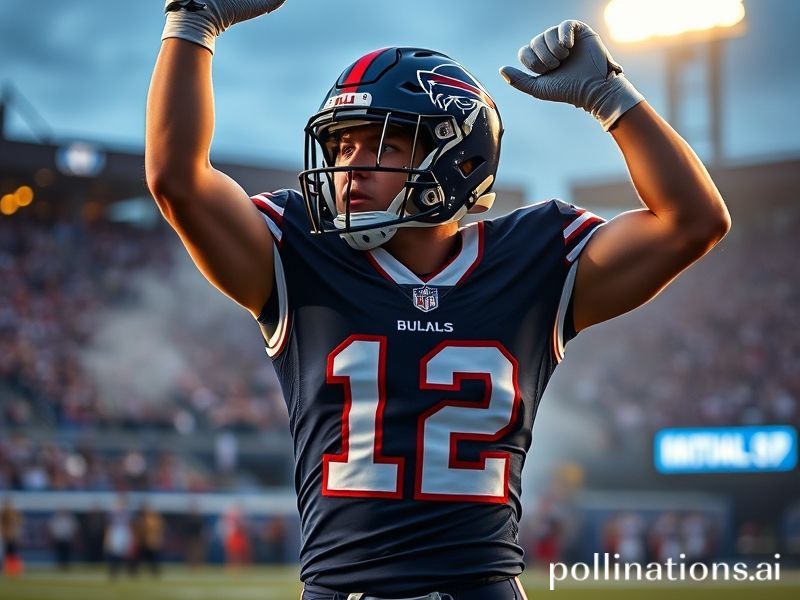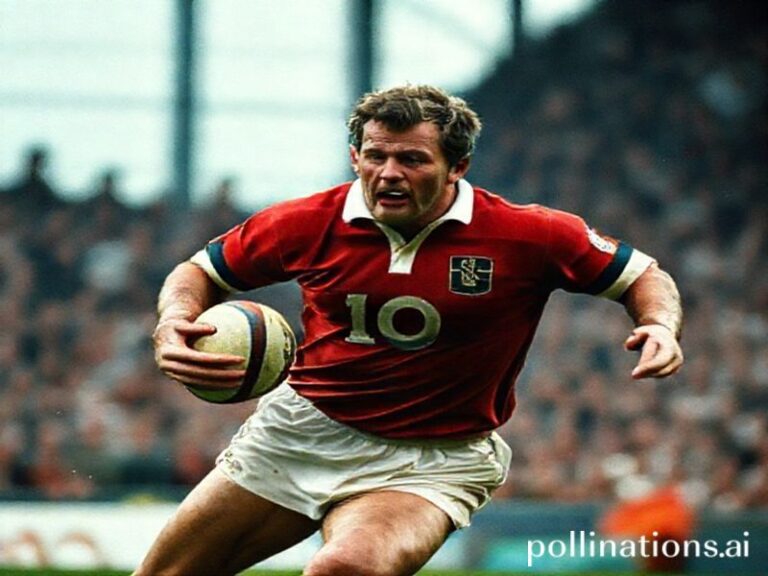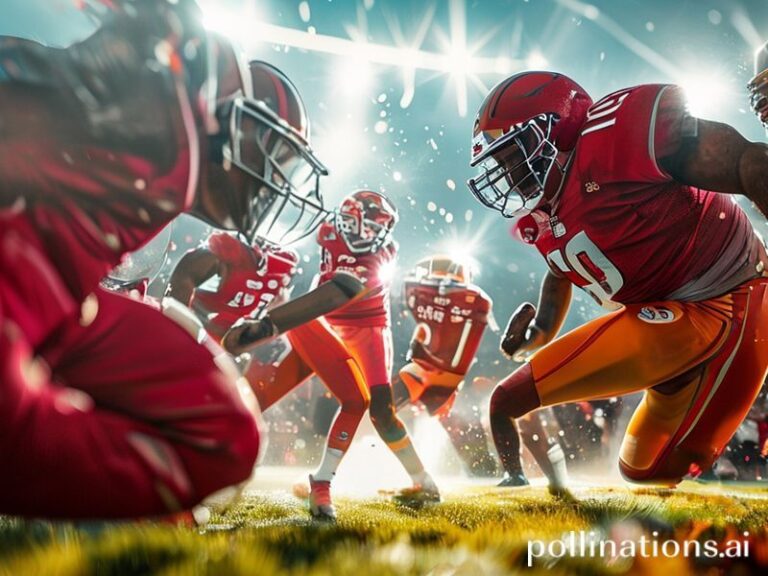Dawson Knox and the Global Supply Chain of Sorrow: How One NFL Tragedy Became the World’s Commodity
Dawson Knox and the Curious Export of American Grief
A dispatch from the Department of Existential Exports
By the time the news of Dawson Knox’s younger brother Luke’s death pinged European phones at 03:47 CEST—sandwiched between an Amber Alert and a crypto-scam push notification—the Buffalo Bills tight end had already become an unwitting case study in how America packages private sorrow for planetary consumption. In a world where supply-chain snarls stop baby formula from reaching shelves but never seem to delay the shipment of heartbreak, Knox’s tragedy was cleared for immediate export: tweeted by the NFL in seven languages, subtitled on TikTok within the hour, and already spawning earnest think-pieces in outlets from Lagos to Lahore asking, “What does this mean for the modern athlete?” Spoiler: it means the same thing it meant for Achilles, minus the sandals.
Knox, 26, entered the global feed as the latest proof that the U.S. no longer merely exports Marvel films and inflation; it also excels at the logistics of grief. One moment he was a serviceable red-zone target with a $52 million contract extension; the next he was a Rorschach test on which strangers projected their own theories about resilience, masculinity, and the metaphysics of playing a children’s game for money while your family unravels. Somewhere in Mumbai, a cricket fan who has never seen a snap in his life was forwarding a clip of Knox’s first touchdown after the funeral with the caption “real strength.” The algorithm, ever the diligent customs officer, stamped it: cleared for catharsis.
International audiences find Knox oddly relatable precisely because his story is so extravagantly American. Only in the United States does a private calamity arrive gift-wrapped in fantasy-football implications: suddenly every office league in Singapore had to decide whether drafting a bereaved tight end constituted bad juju or value investing. Meanwhile, European data-protection regulators, still bickering about cookie consent, watched in envy as the NFL’s publicity machine turned a funeral into content without filing a single GDPR request. If sobbing on the sideline is the new soft-power diplomacy, Washington should consider replacing the State Department with ESPN Deportes.
The darker punch line is that Knox’s grief tour coincides with a planet already oversubscribed to tragedy. Ukrainians scrolling through Telegram updates on Russian troop movements were served the same teary Knox montage as Japanese commuters reading about assassinated prime ministers. The algorithm treats all sorrow as fungible: one unit of human pain equals one unit of engagement, exchangeable at market rates for clicks, tears, or cryptocurrency if you’re particularly cynical. Somewhere an exhausted Syrian aid worker refreshes his feed and sees an American football player’s tears auto-playing above an earthquake in Turkey; the human brain, that antique piece of wetware, short-circuits trying to triage empathy.
Yet Knox soldiers on, because that is what the narrative demands. The league flies him to London, schedules a “mental health awareness” press conference, and sells commemorative caps—proceeds to charity, naturally—turning mourning into a soft-launch merch drop. British tabloids, never ones to miss a crucifixion, ask whether he’s “too emotional” for the game, thereby proving that performative stoicism is the last colonial export Britain still manufactures domestically. By the time the Bills play in Munich, Knox’s grief has been translated into German compound nouns no human has ever uttered aloud, a linguistic reminder that trauma, like everything else, is more efficient in the Bundesrepublik.
Conclusion: The World Gets a Tight End, America Gets a Mirror
In the end, Dawson Knox’s story teaches us that globalization’s most reliable product isn’t iPhones or microchips but the commodification of feeling itself. Every continent gets a slice of the sorrow, repackaged in its preferred emotional currency—stoicism in Tokyo, solidarity in São Paulo, spectacle in Los Angeles. And Knox, still lacing up his cleats, becomes both martyr and middleman, proof that in the 21st century even heartbreak requires a logistics network. Somewhere in a warehouse outside Shenzhen, a knockoff “Knox Strong” jersey is already on the assembly line, because nothing travels faster than grief with a barcode.







